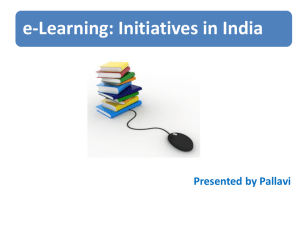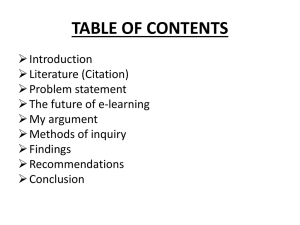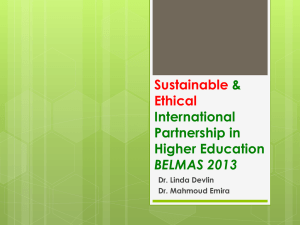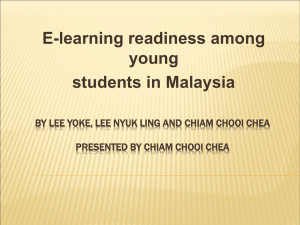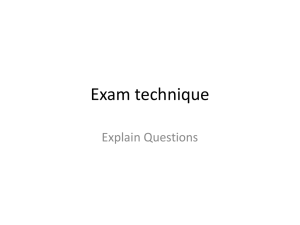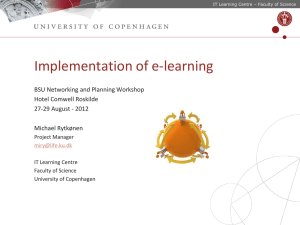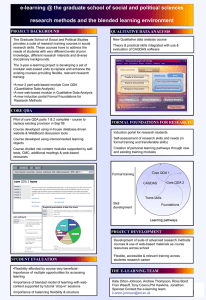Ethical_Issues_eLearning
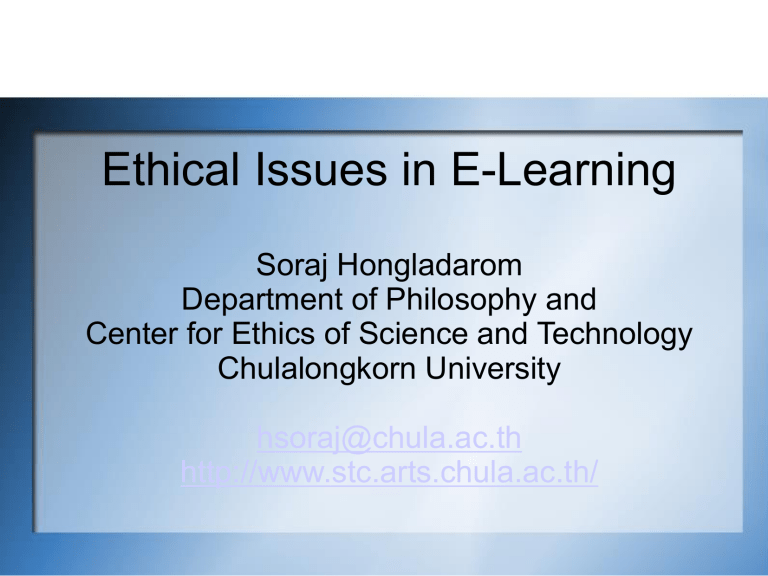
Ethical Issues in E-Learning
Soraj Hongladarom
Department of Philosophy and
Center for Ethics of Science and Technology
Chulalongkorn University hsoraj@chula.ac.th
http://www.stc.arts.chula.ac.th/
Outline
Ethical Issues for e-Learners
Ethical Issues for e-Teachers
Ethical Issues arising within the context of e-
Learning in general
Ethical Issues for Learners
Inappropriate assistance on examinations
Misuse of sources on papers and projects
Writing assistance and other inappropriate tutoring
Misrepresentation in the collection and reporting of data
Improper use of academic resources
Disrespecting the work of others
Ethical Issues for Learners
Lack of protection for human subjects in research
Breaches of computer ethics
Lack of adherence to copyright and copyprotection
Fass, R. A. (1990) Cheating and plagiarism.
Ethics and Higher Education.
Ethical Issues for E-Learners
Taking one’s own responsibility in learning
(This is typically Thai problem – as Thai learners are not mature enough.)
Self discipline
Independence
Self motivation
Ability to set goals and pursue means to achieve the goals
Ethical Issues Concerning E-
Learning Itself
Criticism → E-Learning can’t substitute for faceto-face learning
This is true, but e-learning is better than no learning;
Face-to-face learning can be detrimental if conducted badly
E-Learning can be better if conducted well.
E-Learning and learning outcomes
How can e-learning realize learning outcomes and be contribute to Qualification Framework?
Ethical Issues
Privacy
Intellectual Property and Copyrights
Network Security
‘Netiquettes’
Digital divide
Who benefits from the digital content?
Theses for sale
Looking into the Future
E-Learning will become more prevalent.
Robot teacher
Implanted computer chip in the brain
Enhanced humans – Transhuman
Enhanced cognitive abilities which results in more effective learning
Ethical issue – what about those who are not enhanced?
Automated teaching
E-Learning and Moral Education
Can e-learning help educate more ethical population?
Learning does not take place only in the classroom – this is trivially true in the case of ee-learning, but the content of e-learning and eactivities does not have to be entirely academic.
Integration of online and offline activities – study trip, getting together, charity work.
Blurring the Boundary between
Traditional and Cyber-Univs
Traditional universities are exploring ways to outreach the public through offerings of classroom content – hence they are also becoming ‘cyber’ universities.
However, the offerings are only one-way at the moment.
CyberU’s then can do the same – offering space for students to get together; this is very important for extra-curricular activities.
Criticism
Hubert Dreyfus, “Anonymity versus
Commitment: The Dangers of Education on the
Internet”
E-learning cannot succeed in achieving real education because it does not foster long lasting commitment which is necessary for achieving meaning in life.
Kierkegaard – aesthetic, ethical and religious spheres of existence. Internet can achieve the first two but not the third.
The Net makes people fleeting, shopping around, so no real commitment.
Objection
But we don’t need to have the same goals of education as Dreyfus or Kierkegaard.
We can have real commitment through the Net, even become deeply religious. Dreyfus misunderstands the nature of the Net – The fact that there is a lot of info on the Net does not mean that one has always to shop around.
But that won’t happen automatically.



